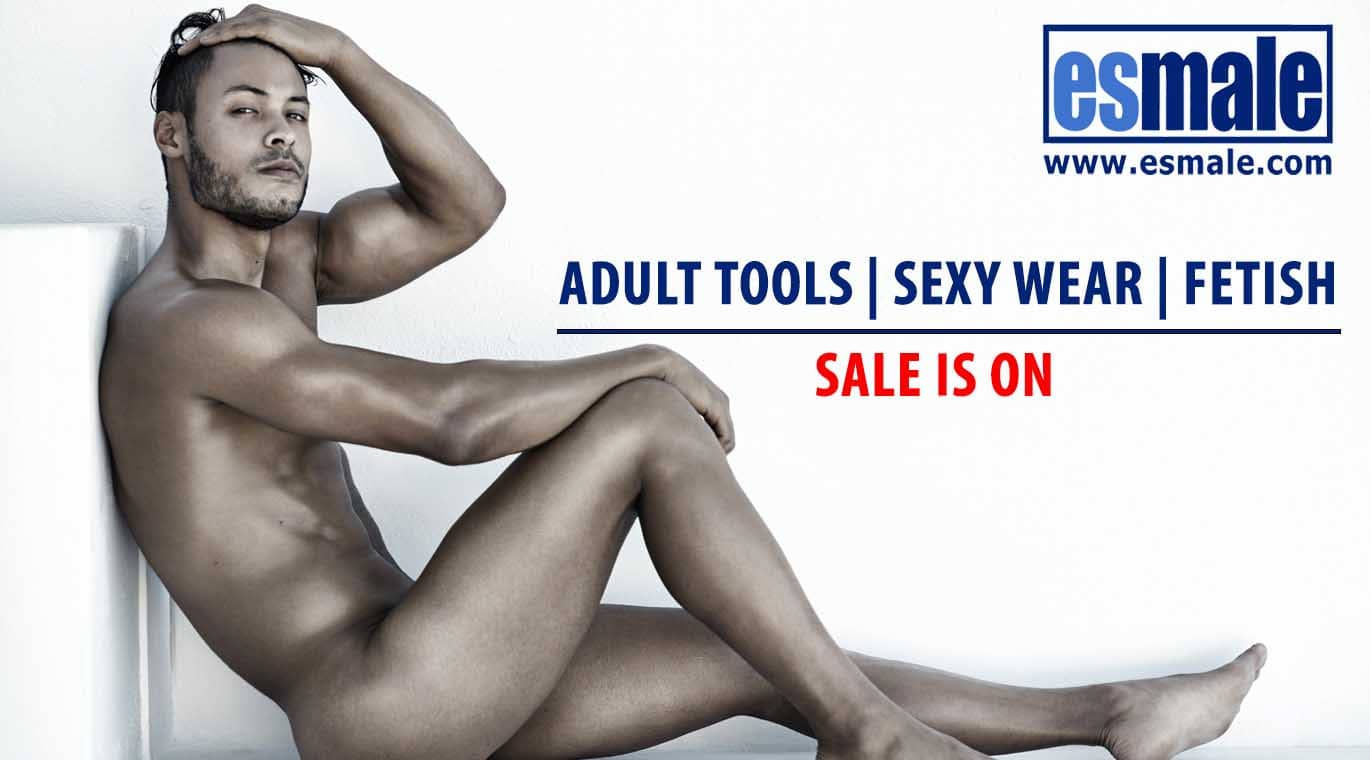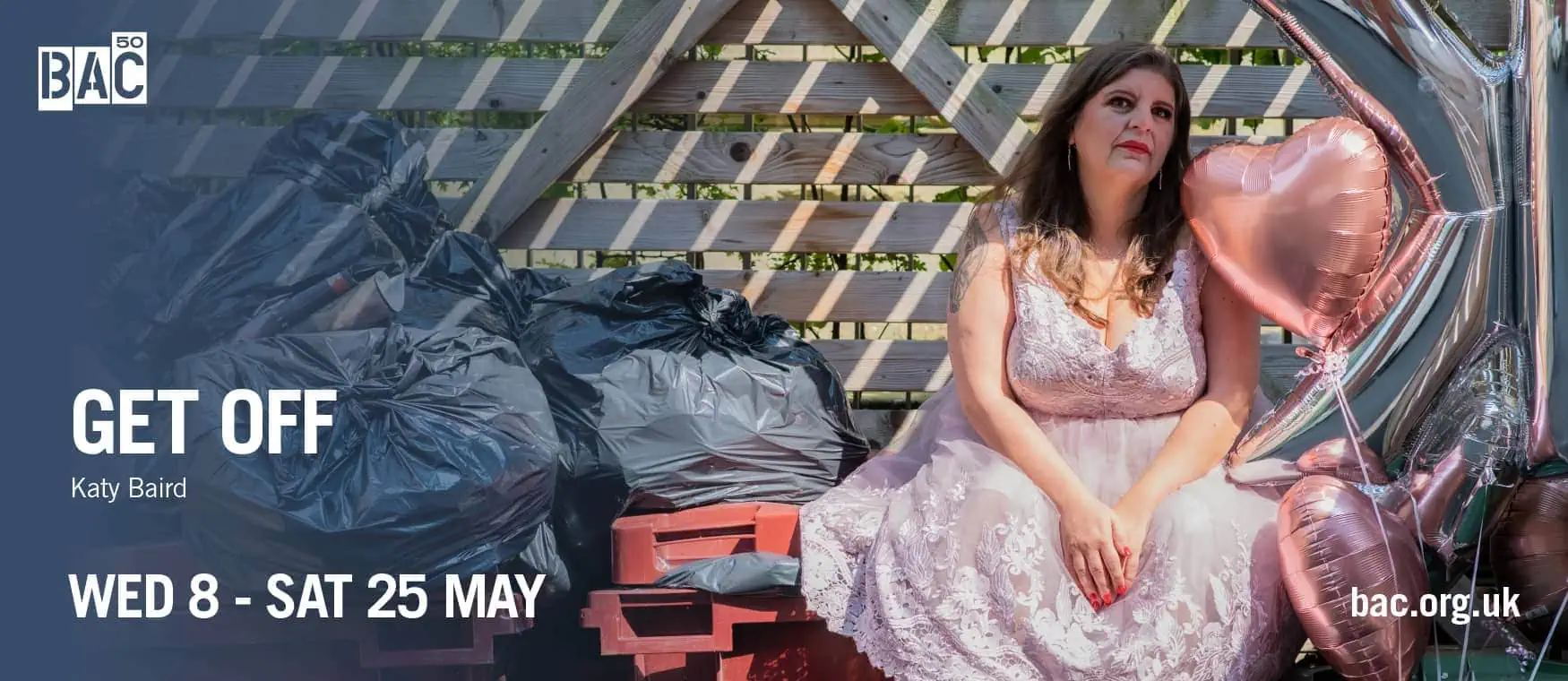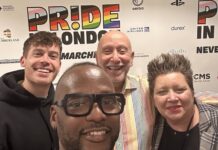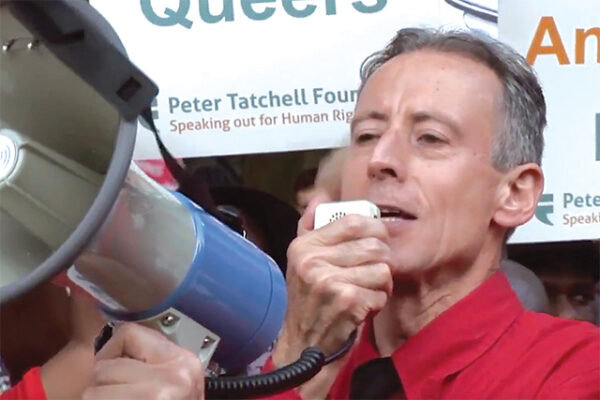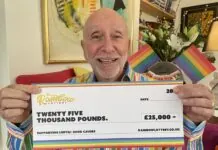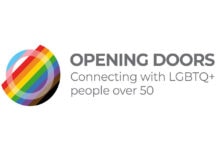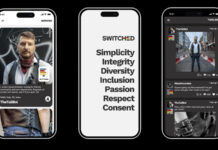2015 may have been a tipping point for trans rights, but for non-binary people the fight for visibility, understanding and acceptance is still in its relative infancy. Chris Godfrey caught up with four genderqueer people about their experiences at work, with family and friends, on the scene and in wider society.
CJ Bruce

Language is a huge part of how we relate to one another, so pronouns can be an issue. The pronouns I prefer to be referred to by are gender-neutral pronouns such as ‘they’, ‘them’, and ‘theirs’. My family have been trying really hard with these but they have trouble accepting the fact that I’m even trans. Sometimes they still use ‘she’ pronouns for me and whenever it happens it feels like a kick in the teeth, but I’m trying to be patient.
At work, I just let them think I’m male. Being a train driver, I don’t have to interact with people as often as I would in most other jobs, so I don’t see the same people at work every day. When you’re dealing with someone who you’re probably only going to see for a minute or two and trying to explain a concept that might be entirely new to them, it might not be worth the hassle and the potential non-acceptance. It is weird, though. Recently, I heard someone refer to me with ‘he’ pronouns and it took me a while to figure out who they were talking about because it just doesn’t mesh with how I see myself. When people use the wrong pronouns to refer to you, it’s kind of like if you had a really embarrassing nickname when you were younger and all of a sudden people have started calling you that again.
“We are raised to believe that only two genders exist and that’s just not true.”
It can be quite frustrating at times, and I wish there was more talk about it. People have this mindset that if they haven’t heard about it or seen it on TV before, it must be bullshit, and that’s obviously not true. There has been recorded use of ‘they’ as a singular pronoun as far back as 16th century and has actually been awarded word of the year by the American Dialect Society this year due to its increase in usage.
We are raised to believe that only two genders exist and that’s just not true. It’s the same as we have been raised to believe that only two sexes exist and that’s not true either. People don’t like to question things that they see as fundamental truths unless it affects them directly. Maybe it’s because they’re worried they might see themselves differently, and I understand that that is a scary concept. They also might just not have anything in their own lives that they feel they can relate to it.
Maybe, as simple as it sounds, it would be easier for people to understand non-binary people if they had more examples of it in their everyday lives. Like, if there were a character on Eastenders or something that was non-binary and used ‘they’ pronouns, people would find it easier to be like “Oh yeah, I get that. It’s like that one off the telly.” I can’t wait for a time when it’s that easy!
Bill Savage

But then, last September, there was the government’s response to an online petition asking for transgender people to be able to self-define their legal gender. The Ministry of Justice’s response to non-binary people was basically to say that they had no intention of legally recognising people who define as a gender that’s not male or female, and that they were not aware of “any specific detriment” experienced by non-binary people! So it feels like things are starting to be discussed, but it’s still not at a point where you can legally define yourself as something other than male or female.
I’m not sure if legal change is the only thing we need. You are erased in other ways. It’s not overt, but it’s just the world is set up for two genders and if you try to be anything else it sometimes feels impossible. Society just needs to be less gendered in general – like often you get asked for a title or a gender when there’s really no need for it.
There’s just a chronic lack of awareness and a lack of knowledge about other gender identities. Like in that petition response, it’s just generally assumed there aren’t many or even any people to whom this applies and therefore it’s not really an issue. So the progress is uneven, but starting to move in the right direction. I came out as non-binary about four years ago and I feel like even in that time there’s been so much change and people are more aware of what it is.
“The world is set up for two genders and if you try to be anything else it sometimes feels impossible.”
My queer friends are amazing so they get it and that was fine. I’m out to my family, they took a bit longer to understand it, as did people at work. Working in a university is a relatively accepting atmosphere. Not completely, you’d be surprised, but it’s a lot better than some other places. My students are great. I do talk to them about it but it’s difficult. When I changed my name they got used to it pretty quickly, but it’s harder with pronouns. I am asking them to use ‘they’ now and some of them do and some of them don’t.
The hardest thing is keeping hold of that sense that you are what you know you are, even though you rarely get acknowledged as such. Sometimes you have to exist in the face of the confident assumption that you don’t. But you are legitimate; remember that.
Shy Charles

I’ve previously worked as an English teacher, as well as a few different jobs and actually being genderqueer in the work place presents a range of difficulties, depending on what you do. For instance, if you work in campaigning or activism, or I guess fashion, then it perhaps wouldn’t be so much of an issue, or certainly less than other industries. But if you work in somewhere quite corporate or straight-laced, then it can crop up.
Being genderqueer has certainly limited me in terms wondering if I would feel welcome in a certain environment – ‘can I go to that, can I apply to this job’, usually deciding for my self that I probably couldn’t, because it would be too traditional, or too macho or whatever. I think these thoughts reflect the realities of the situation; I don’t think I’m being irrational or exaggerating.
There are job interviews that I haven’t got and I’m sure being genderqueer will probably have formed part of the reason people have judged me, because I usually do try to be myself and not think ‘oh well I’ll just dress as a boy’.
“There have been times in my life where I’ve been read as a cisgender female and experienced the misogyny and sexual harassment women face, rather than transphobia or homophobia.”
There have been times in my life where I’ve been read as a cisgender female and experienced the misogyny and sexual harassment women face, rather than transphobia or homophobia. But it’s quite rare for that to happen to me now because I’m very seldom clean-shaven. And the thing about being genderqueer for me is that I’m not unhappy about gendered as male or female, because I’m both and neither of those things.
I only bother wearing makeup to work a couple of days a week. So I’m kind of going through my life not identifying as male or female, but being seen as male quite a bit of the time. Often in my day-to-day life I don’t look especially queer, at least I don’t think I do. People would see me as a gay man I would say, albeit one with long hair, painted nails and the rest of it.
But I’m still genderqueer even if I happen to go out that day wearing a beard, no make up and a tracksuit. Apart from the beard, that’s exactly the way some women would dress from time to time. On occasions like that you question yourself because you think maybe I need to make more of an effort to show people who I really am. But then the onus shouldn’t be on me to wander around looking a particular way just to flag myself up as this unusual person.
You can have these quite circular thoughts about stuff like this the whole time. You face these things each day; in small ways it permeates everything.
It would be wonderful to think that we are moving towards a world where in the first instance your gender has less of an impact on how you’re treated by others and the opportunities that you have. And from a trans point of view it would be good to move towards a world where people are less presumptuous.
I try to be fairly forgiving of people’s ignorance – it might not be their fault they’ve not been confronted with trans issues before, so I try to be patient as long as I can tell that someone is coming from a place of acceptance and making a bit of an effort.
Sean Curran

My biggest issue is really about how genderqueer people fit into queer social spaces. Up until recently, I read as a man wearing makeup and when I was in predominantly gay male spaces I was pretty invisible. In the last few months I’ve stopped wearing make up for a variety of reasons, and now all of a sudden I’ve become very, very visible in the spaces I used to be invisible, and vice versa.
All of a sudden I’m finding myself being approached by people who would never have approached me a few months ago when I wore make up. I went on a few dates with someone a while ago and showed them a picture of how I looked in makeup and they said that they wouldn’t have started dating me had I looked like that. They said I looked ‘a little bit tranny’, to which I said ‘well I am a bit tranny’.
I think it’s strange because I exclusively date men, or male identifying trans people (but mainly cis-men), and sometimes I take advantage of the fact that I read as a gay man because it’s easier.
“I think the biggest misconception is that genderqueer people are on their way to somewhere else.”
At the moment I’m seeing someone who doesn’t know much about genderqueer people but he’s interested in it and unfazed by it. Ultimately how I identify shouldn’t really affect them. But I guess if you’re dating someone who exclusively identifies as a gay man, they have to rethink their own identity in relation to you, because you’re not a gay man, so they’re not in a relationship with a man.
I have an old friend who really had to think about the concept of her own identity. She identified as a lesbian for a long time and was then going out with a non-binary trans person. They had to start using the word queer, which they’d always really hated, because they accepted that they weren’t going out with a woman so it was undermining the other person’s identity to continue to identify as a lesbian.
I’ve only recently got the confidence to start dating at all and before that I went for years of being completely invisible. It was laughable because I tried to engage with things like Grindr and the only people who would communicate with me tended to be much older married men who fetishized effeminate men. And it wasn’t what I was looking for, because I didn’t want to be a fetish. I’m not gonna turn up in fishnets and they’d probably be quite disappointed if they saw me just dressed like a mid-2000s emo kid.
When I was a child I was always surrounded by women and I was always surprised when I was recognised as a boy. Because I always felt more like a girl, but I didn’t feel like I was a girl. For a long time I sort of assumed that all gay men felt that way. But it’s only more recently that I’ve realised that I don’t have to think ‘am I a transgender woman or am I just like a really camp man?’
I think the biggest misconception is that genderqueer people are on their way to somewhere else. I think it’s mainly to do with how trans ‘journeys’ are depicted in the media. It’s this obsession with the ‘before and after’ reveal, the shock factor. It happened with Caitlyn Jenner, and while there were many good things to come from that, I think the whole thing was ultimately just repeating the same old tropes but on a much bigger scale.
It’s this idea that you go from being unhappy and trapped to liberated and happy. And that’s just not the case at all. There is an in-between area that’s not just part of a “journey”, it’s the destination. You don’t need to be constantly thinking ‘where am I going, what am I going to look like, who am I going to be’. You’re there now. You can be there. It isn’t necessarily something that means you have to settle for one or the other. I think that’s quite liberating.


